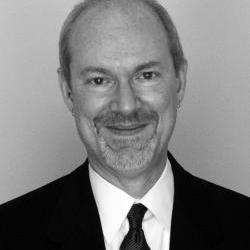In any major metropolitan area there are likely to be many Christmas-time performances of George Frideric Handel's Messiah, ranging from community and church choruses and sing-along readings, to professional-level performances. For those who thought they knew Messiah, the performance on Saturday evening by Apollo's Fire, conducted by Jeannette Sorrell, was a revelation. In the second of five performances in four venues around the Cleveland area, Messiah has seldom seemed so dramatic, so alive with detail, yet with an overall sense of the work's architecture. Throughout the almost three hour performance, my attention never flagged, even in arias that can sometimes be dull.
In her thought-provoking program essay, Sorrell pointed out that Messiah, unlike Handel's operas or other oratorios, has no characters. Charles Jennens's libretto, assembled from biblical sources, is instead a series of contemplative tableaux. Unlike the Bach Passion settings, the prophecy and Jesus' life, death and resurrection are inferred. Messiah was an act of desperation on Handel's part to revive his flagging career after his operas fell out of favor. Messiah was neither opera nor typical oratorio; it was not composed for church performance, yet on a sacred text that was controversial for performance in theaters. Handel tinkered with the score for each performance – even the first performance in Dublin in 1742 differed from the score that Handel wrote.
Presenters are thus at great liberty to fit the score to their own forces. In this performance Sorrell used four soloists: soprano (the radiant Meredith Hall); mezzo-soprano (a light-voiced but dramatic Amanda Powell); tenor (stentorian, yet colorful and flexible Ross Hauck); and baritone (veteran Jeffrey Strauss, who sang his recitatives and arias as if he were telling a story from his heart for the first time). The Apollo's Singers were composed of some of Cleveland's best choral singers; they were remarkable for their blend, precision and attention to phrasing. The Apollo's Fire Orchestra comprised 20 players, including Sorrell herself, who sometimes conducted from the harpsichord and sometimes stood to conduct.
The soloists not only sang their own movements, but they also sang as part of the chorus. (I did notice that soprano Hall sang the alto line in the choruses.) The solos were liberally ornamented, giving me the sense that they were either very well planned or improvised – perhaps some of both. There was no pause in the dramatic flow; the soloists moved into position during the closing passage of the previous movement. The soloists sang their parts mostly from memory and used simple but effective gestures to add to the dramatic effect. These were not mere musical performances but singing actors propelling this telling of “the greatest story ever told.” Amanda Powell's “O thou that tellest good tidings to Zion” was matched by the chorus in their great exclamations, “Arise! Shine!” Powell's voice is not the plummy contralto that one often hears in Messiah; it is slender and light, with some of the low notes being a challenge for her. But her sense of musical line and diction was superb, particularly in “He was despised,” which can sometimes seem endless. Meredith Hall's performance of “Rejoice greatly, O daughter of Zion” was thrilling, with clarity of coloratura. In “I know that my redeemer liveth” the violin part was played by concertmaster Olivier Brault as a solo obbligato with voice. The upward musical line “For now is Christ risen” was ecstatic. Several other arias were performed in this configuration of violin solo obbligato, giving a sense of immediacy and intimacy not possible had the whole violin section been playing. Violinist Johanna Novom shared the obbligato duties with Brault.
Ross Hauck's relatively large, bright tenor voice was handled gracefully, managing the coloratura with ease. He captured a range of emotions in the series of short sections beginning “All they that see him.” His diction was the clearest of all of the soloists. Baritone Jeffrey Strauss was at his best in the “rage” arias, “Thus saith the Lord” and “Why do the nations rage.” It was as if he was shaking his fist at God. Purity of musical tone was occasionally left behind in favor a dramatic effect. His performance of “The trumpet shall sound,” with trumpeter Josh Cohen, was thrilling.
The choruses were models of clarity and blend, with carefully molded phrases. There was a wayward pitch from time to time, and the chorus's final consonants sometimes got lost in the large space of the packed gothic-style nave of First Baptist Church. But these were small quibbles.
Throughout, it was Jeannette Sorrell's vision which led to an uncommonly unified success. This was a Messiah that will last in my memory for a very long time.


